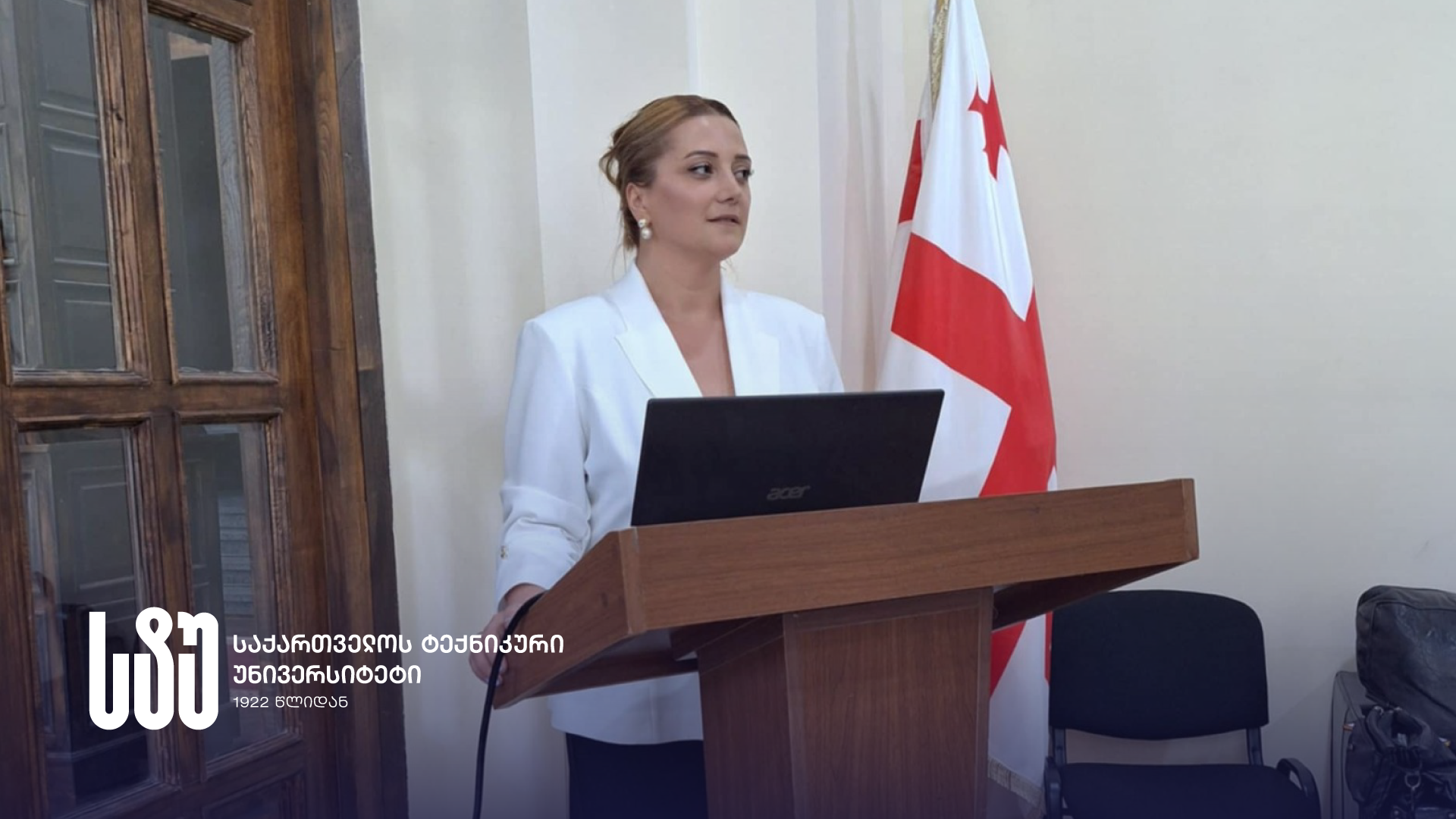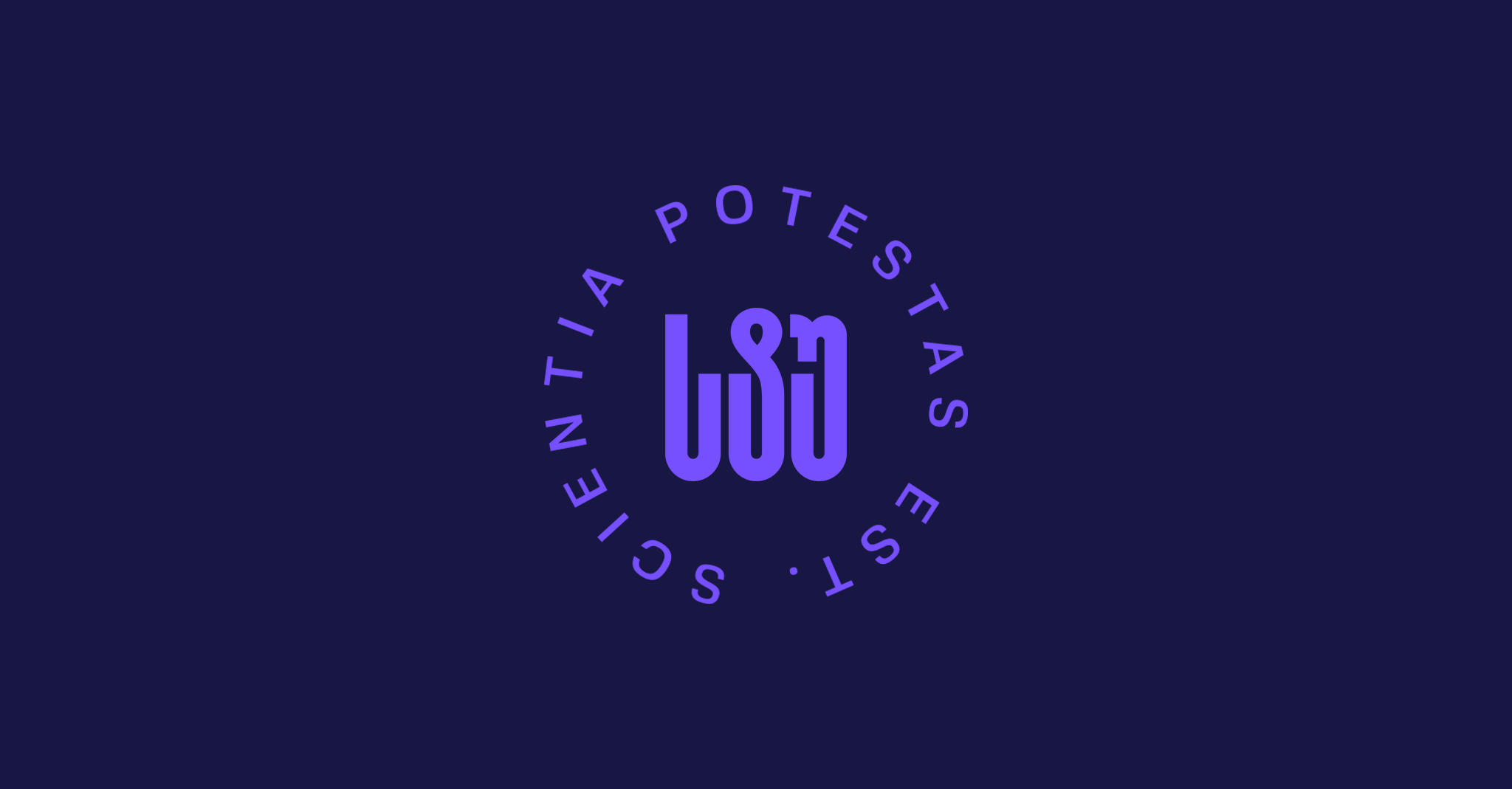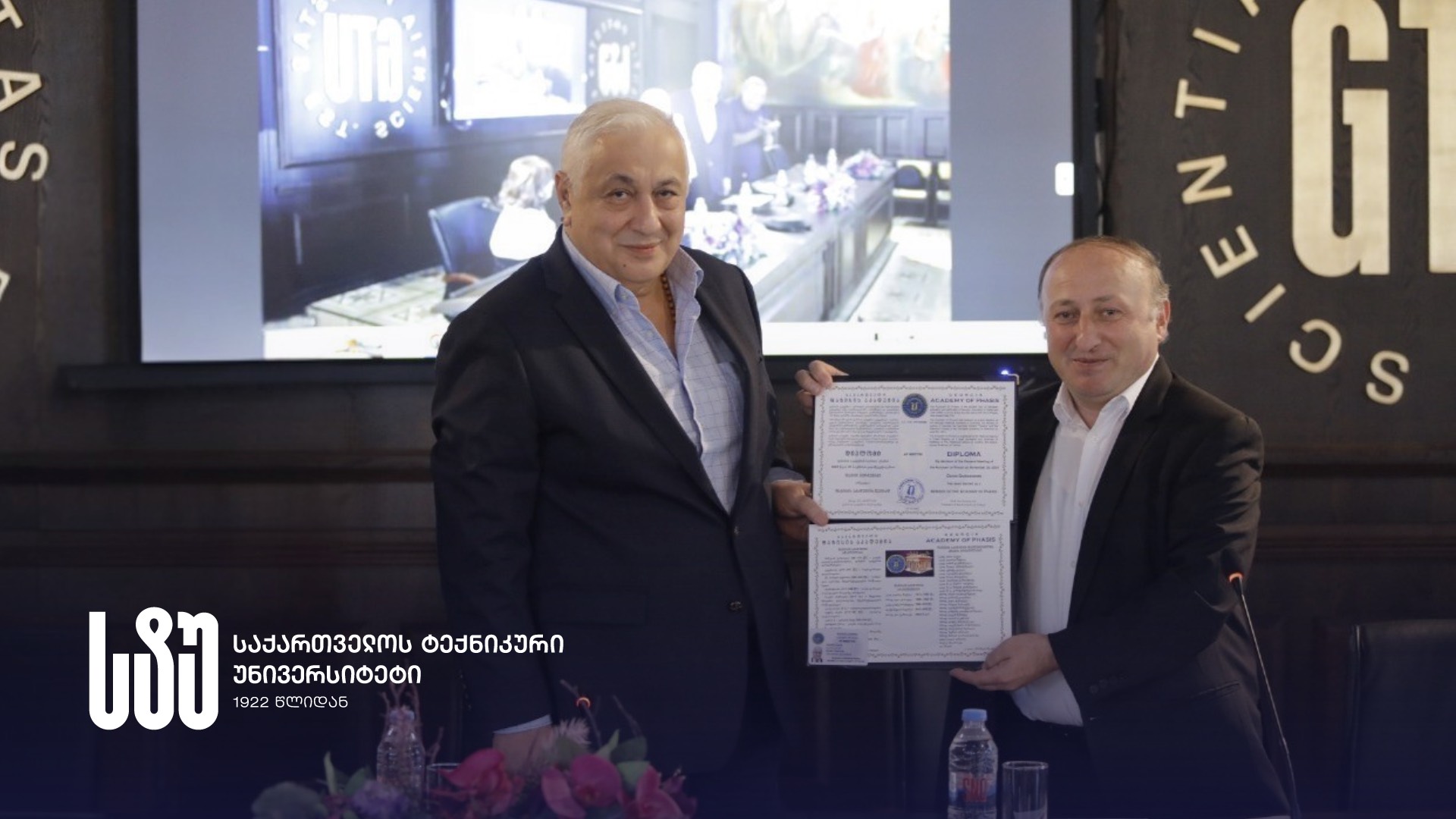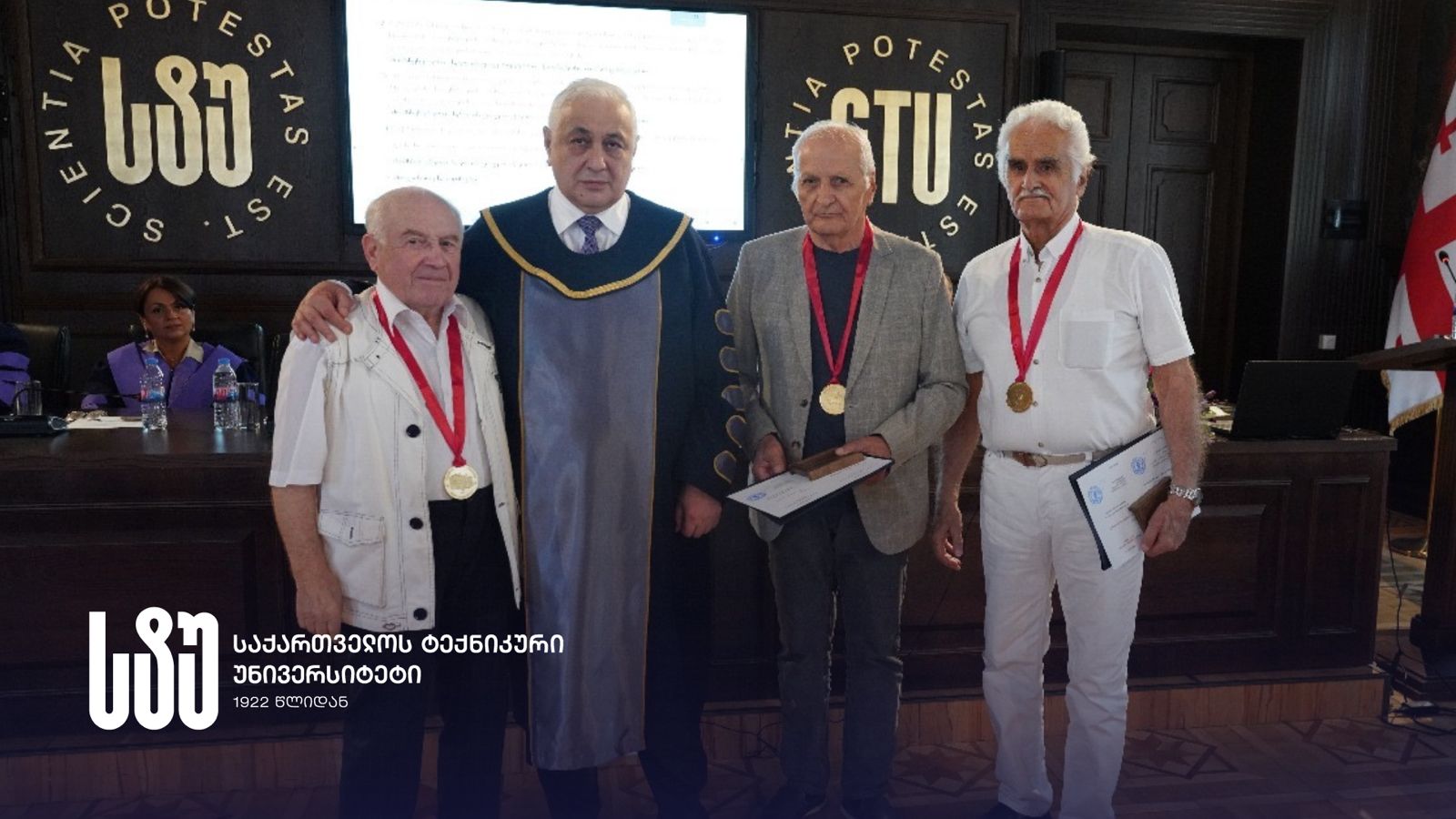The GTU doctorate student researched the role of religion and culture in social pedagogy
18-07-2024
Tinatin Dekanoidze, a doctorate student of the Faculty of Engineering Economics, Media Technologies and Social Sciences of the Georgian Technical University, under the guidance of professors Yasha Kutubidze and Vazha Gurgenidze, for the first time in Georgia conducted research on the role of religion and culture in social pedagogy.
PhD student Tinatin Dekanoidze’s research – “The Role of Religion and Culture in Social Pedagogy” - deals with various aspects of social pedagogy and its integration with religious and cultural values.
The work also explores the place and role of social pedagogy in society, reflecting its essence, practical importance, and interaction with secularism and educational paradigms.
As the doctorate student stated, the work emphasizes the important impact of social pedagogy on nurturing holistic development, the need to include both social pedagogy in the educational system, and the role of religion and culture, including secular and spiritual principles to foster an inclusive and value-oriented environment.
The researcher examines models of children’s religious education and touches on traditional and modern approaches, interfaith education, the role of family and society, curriculum development, and pedagogy.
“In the research, I tried to consider the effects of pseudo-freedom, critically analyze the balance between freedom and religious paradigms, the wrong, changed perception of freedom and secularism and its popularization, which impacts the spiritual formation of adolescents and young people.
The paper presents a comparative analysis of spiritual education practices in developed countries, their experiences and learning methods, and best practices and challenges identified in integrating spirituality into educational frameworks. The study focuses on the reality of children and adolescents under state care, their psychosocial condition, and existing legislation. Also, it discusses the general and current situation of the beneficiaries living in the care system, both at the educational and legislative levels. Emphasis is placed on difficulties and challenges after leaving the care system.
The research serves to search for opportunities to manage the mentioned issues, as well as to establish the possibility of the phenomenon of social pedagogy and establishing the best practices of other countries, especially considering the religious and cultural context of Georgia”, said Tinatin Dekanoidze.
As Yasha Kutubidze, the professor of GTU, and academician of the Georgian Academy of Social Sciences, noted, Tinatin Dekanoidze’s work offers interested persons a detailed study of how religion and culture intersect with social pedagogy, what the use of social pedagogy principles and religious values in the process of education mean for both school students and the youth who has left the state care system and promotes their effective integration into society.
“The studying of the role of religion and culture in social pedagogy is of great importance, especially in the context of Georgian society. Our country, distinguished by its religious and cultural diversity, offers us a unique lens through which to examine the interrelationship between these fundamental elements and educational methodologies.
Georgia, located at the crossroads of Eastern and Western civilizations, has always been full of different religious traditions, where Orthodox Christianity stands out.
The essence of social pedagogy is mainly related to the support of adolescents in dealing with various social problems and thus, helping and supporting them in the process of upbringing, development, and adaptation to the environment. Based on the effectiveness of the existing concepts of social pedagogy that are successfully used in Western countries - as an integral part of the educational system and a compiler that promotes adaptation and socialization of adolescents in the environment, while taking into account the broad social, cultural. and environmental features of a particular society.
The use of the principles of social pedagogy in the education system leads to the development of the personal skills of adolescents, the development of self-expression and decision-making skills, the formation of a sense of social responsibility and effective integration with society, as well as their general development and well-being.
Social pedagogy in the educational field, as a vital conduit, connects academic learning with social development, and includes an in-depth approach that refers to the multifaceted nature of students. The principles of education in Georgia include a nuanced understanding of secularism, which means not removing religious influence, but fair inclusion of all religious denominations in the educational and socialization process”, said Yasha Kutubidze.
PhD student Tinatin Dekanoidze’s research – “The Role of Religion and Culture in Social Pedagogy” - deals with various aspects of social pedagogy and its integration with religious and cultural values.
The work also explores the place and role of social pedagogy in society, reflecting its essence, practical importance, and interaction with secularism and educational paradigms.
As the doctorate student stated, the work emphasizes the important impact of social pedagogy on nurturing holistic development, the need to include both social pedagogy in the educational system, and the role of religion and culture, including secular and spiritual principles to foster an inclusive and value-oriented environment.
The researcher examines models of children’s religious education and touches on traditional and modern approaches, interfaith education, the role of family and society, curriculum development, and pedagogy.
“In the research, I tried to consider the effects of pseudo-freedom, critically analyze the balance between freedom and religious paradigms, the wrong, changed perception of freedom and secularism and its popularization, which impacts the spiritual formation of adolescents and young people.
The paper presents a comparative analysis of spiritual education practices in developed countries, their experiences and learning methods, and best practices and challenges identified in integrating spirituality into educational frameworks. The study focuses on the reality of children and adolescents under state care, their psychosocial condition, and existing legislation. Also, it discusses the general and current situation of the beneficiaries living in the care system, both at the educational and legislative levels. Emphasis is placed on difficulties and challenges after leaving the care system.
The research serves to search for opportunities to manage the mentioned issues, as well as to establish the possibility of the phenomenon of social pedagogy and establishing the best practices of other countries, especially considering the religious and cultural context of Georgia”, said Tinatin Dekanoidze.
As Yasha Kutubidze, the professor of GTU, and academician of the Georgian Academy of Social Sciences, noted, Tinatin Dekanoidze’s work offers interested persons a detailed study of how religion and culture intersect with social pedagogy, what the use of social pedagogy principles and religious values in the process of education mean for both school students and the youth who has left the state care system and promotes their effective integration into society.
“The studying of the role of religion and culture in social pedagogy is of great importance, especially in the context of Georgian society. Our country, distinguished by its religious and cultural diversity, offers us a unique lens through which to examine the interrelationship between these fundamental elements and educational methodologies.
Georgia, located at the crossroads of Eastern and Western civilizations, has always been full of different religious traditions, where Orthodox Christianity stands out.
The essence of social pedagogy is mainly related to the support of adolescents in dealing with various social problems and thus, helping and supporting them in the process of upbringing, development, and adaptation to the environment. Based on the effectiveness of the existing concepts of social pedagogy that are successfully used in Western countries - as an integral part of the educational system and a compiler that promotes adaptation and socialization of adolescents in the environment, while taking into account the broad social, cultural. and environmental features of a particular society.
The use of the principles of social pedagogy in the education system leads to the development of the personal skills of adolescents, the development of self-expression and decision-making skills, the formation of a sense of social responsibility and effective integration with society, as well as their general development and well-being.
Social pedagogy in the educational field, as a vital conduit, connects academic learning with social development, and includes an in-depth approach that refers to the multifaceted nature of students. The principles of education in Georgia include a nuanced understanding of secularism, which means not removing religious influence, but fair inclusion of all religious denominations in the educational and socialization process”, said Yasha Kutubidze.


